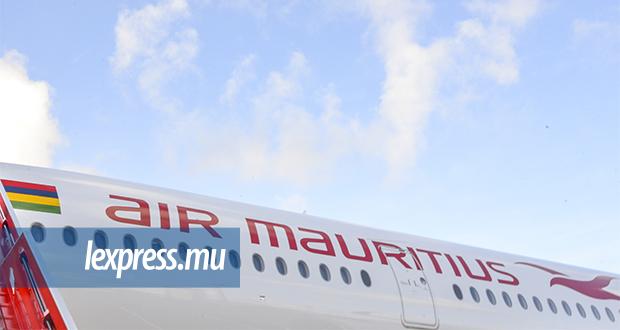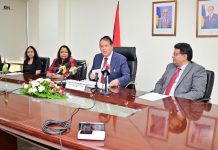
Africa-Press – Mauritius. The cession of the administration will not come without conditions. For the tandem, Hajee Abdoula and Gokhool, the best option for MK and his creditors is the “Deed Of Company Arrangement”… to avoid any possible liquidation. A decisive September 28 for Air Mauritius (MK).
While in the upper echelons of the government hall, the date of September 27 for the holding of the Air Mauritius Watershed Meeting was advanced until last week, the administrators Sattar Hajee Abdoula and Arvind Gokhool finally have it.
shifted by one day. The parties concerned listed in three categories have been informed since yesterday. The future of MK, which has been under voluntary administration since April 22, 2020, will be decided at this meeting of creditors.
However, each class of creditors will meet and vote separately and at different intervals. Class A – made up of lessors of aircraft operating at 11 a.
m. , Class B – made up of hedging counterparties at noon and Class C – made up of the general pool of creditors at 2 p. m. They are faced with three options.
First, decide that the company will carry out the proposed Deed of Company Arrangement (DOCA). Second, decide on the end of the administration; or third, decide that the company be put into liquidation.
The trustee tandem believes that the best option for creditors is for the company to execute the DOCA: first, returns to creditors would be greater than under the other options. They claim that liquidation returns would be zero for all affected creditors of the company.
To add that simply terminating the administration and returning the company to its directors is also not viable as the company is insolvent and will not be able to pay its debts as they fall due.
Then, for administrators, this option offers greater certainty and faster reimbursement than the other options. The DOCA payments will be funded by a shareholder loan through a government-owned entity and will be distributed to creditors by October 31, 2021.
Third, they claim that in a liquidation scenario, there would be additional uncertainty as to the value of assets that can be realized, as realization would be on a distress basis.
Fourth, if the administration were to end, again according to Hajee Abdoula and Gokhool, several creditors would probably take steps to enforce their claims against the company, which would result in the company likely ending up in liquidation in this scenario as well.
Hence their recommendation that all categories of creditors vote in favor of the execution of the DOCA. Payment of the amounts offered will be made before October 31, 2021.
On that date, all unclaimed or unresolved amounts will then be transferred to a trust for a period of one year. Air Mauritius Limited will then exit the administration on November 1, 2021.
The proposal will be adopted if it is approved by each category of creditors by a majority of 75% of those who vote in that category. All categories of creditors must approve the DOCA for it to be adopted.
If the DOCA is approved by the creditors, the directors will become the directors of the DOCA, unless the creditors decide to appoint someone else at the meeting; and the DOCA must be signed by the company and the directors within 21 days of the meeting. Once signed, the DOCA binds the company, its creditors, its directors and shareholders, and the directors of the deed.
Savings of Rs 385 million thanks to the social plan
The report of the directors of Air Mauritius, Sattar Hajee Abdoula and Arvindsingh Gokhool, is categorical: the application of the social plan has enabled Air Mauritius to save 7.7 million euros, or Rs 385 million since it was put under administration volunteer on April 22, 2020.
This amount results from three main measures included in the social plan: either the revision of the pilots’ contracts (Rs 125 million); the introduction of part-time jobs to a number of employees, Rs 240 million and the decision to grant special leave without pay for a period of two years, Rs 20 million.
The two directors also point out that the company has accumulated losses in a row for 15 consecutive years, from 2004 to 2019, with losses of more than Rs 1 billion. And this against profits of Rs 225 million.
Sattar Hajee Abdoula and Avindsingh Gokhool specify that at the time of taking possession of the air carrier, its assets totaled Rs 28 billion and liabilities over Rs 30 billion. As for loans taken out from various financial institutions, they amounted to Rs 16 billion.
What about the resumption of flights after the full opening of the borders? Based on the IATA air traffic analysis, the Adboula / Gokhool tandem report notes that “the recovery in global air travel is expected to be protracted” and that the traffic will only reach its pre-pandemic level.
‘in 2023. In July 2019, international air traffic was 74% below the 2019 level while the domestic was 16% below compared to 2019.
“In the case of Mauritius, where the traffic is mainly air, the recovery from before the Covid-19 period will take longer ”, write the two administrators.
The list of Air Mauritius creditors, numbering 2,165, shows that two commercial banks, HSBC and ABSA (Mauritius) have loans of Rs 860 million and Rs 453 million respectively with the airline. The third company is that of Air France with an amount of Rs 480 million.
Overview of DOCA
“A DOCA contains a debt restructuring plan which is aimed at allowing MK to continue as a going concern for the benefit of its creditors as a whole and, when it is executed by MK and the Deed Administrators, will constitute the DOCA of MK in accordance with Section G of Sub-Part IV of Part III of the Act.
In short, the DOCA proposes, among other things, a compromise on creditors’ debts of (i) 65% for aircraft operating lessors, (ii) 40% for hedge counterparties, and (iii) 50% for the general body of unsecured creditors .
A total of MUR 9.5 billion (subject to foreign exchange conversions) will be required to fund these payments. This does not include additional funds required for the business going forward, and in relation to which an amount of MUR 2.5 billion has been earmarked by Government.
”






